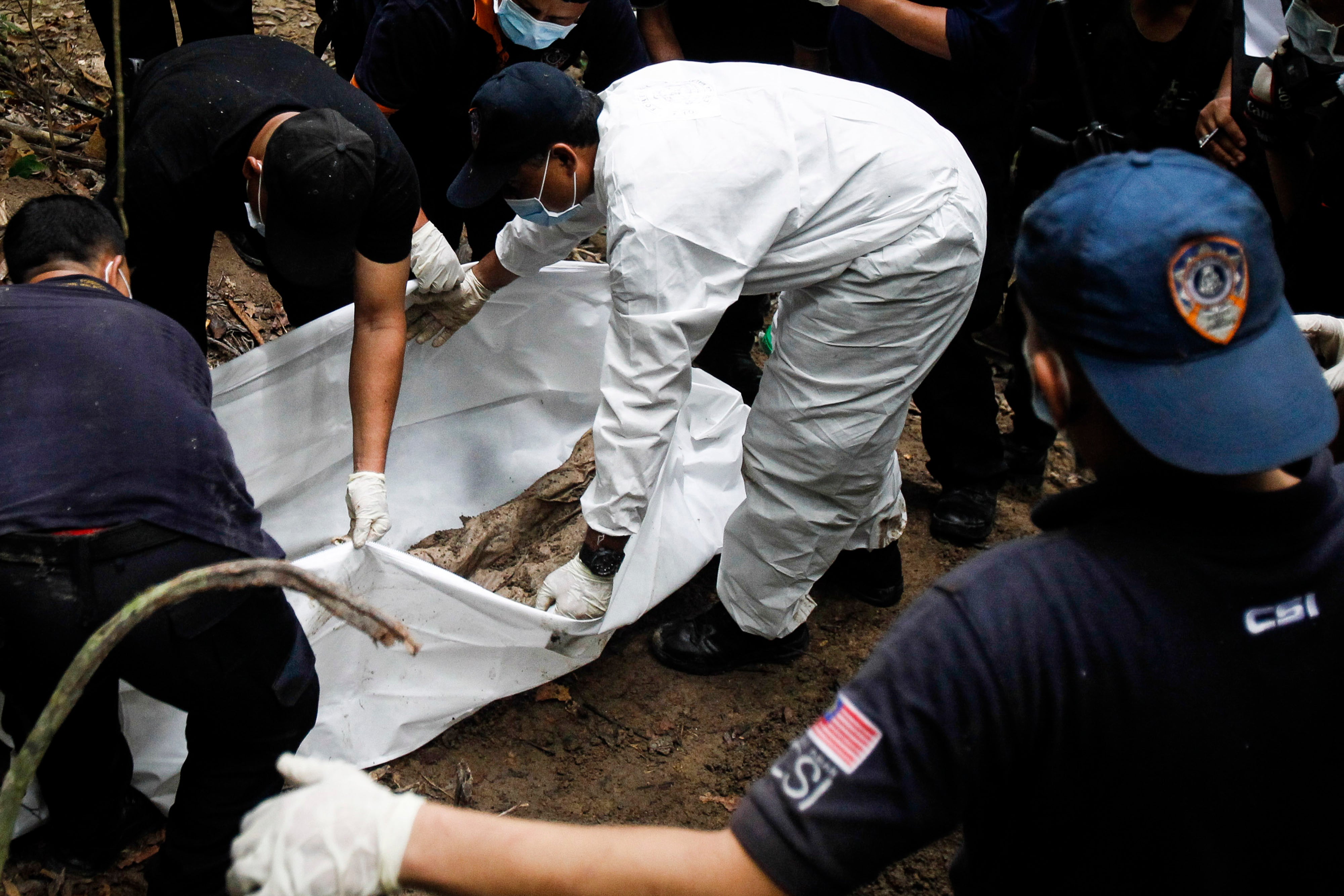Malaysia charges 4 Thais over the mass graves and human trafficking camps found in 2015
Four Thai nationals have been charged with human trafficking in a Malaysian court over the 2015 discovery of mass graves and human trafficking camps at the country’s border with Thailand

Your support helps us to tell the story
From reproductive rights to climate change to Big Tech, The Independent is on the ground when the story is developing. Whether it's investigating the financials of Elon Musk's pro-Trump PAC or producing our latest documentary, 'The A Word', which shines a light on the American women fighting for reproductive rights, we know how important it is to parse out the facts from the messaging.
At such a critical moment in US history, we need reporters on the ground. Your donation allows us to keep sending journalists to speak to both sides of the story.
The Independent is trusted by Americans across the entire political spectrum. And unlike many other quality news outlets, we choose not to lock Americans out of our reporting and analysis with paywalls. We believe quality journalism should be available to everyone, paid for by those who can afford it.
Your support makes all the difference.Four Thai nationals were charged Friday under Malaysia's anti-trafficking laws in connection with the 2015 discovery of mass graves believed to be of Rohingya Muslims and Bangladeshis held in camps in a hilly jungle area on the country's border with Thailand.
Home Minister Saifuddin Nasution said in a statement that the four were among 10 Thai citizens the government had sought for extradition in 2017 over the tragedy at Wang Kelian in northern Perlis state that had shocked the nation. Following cooperation with Thai authorities, he said the four men were caught and extradicted to Malaysia on Thursday to face charges.
In May 2015, Malaysian police announced the discovery of a cluster of abandoned jungle camps used by human traffickers in Wang Kelian and later exhumed 139 bodies from mass graves there. The findings followed a similar discovery earlier the same month by Thai police, who unearthed 36 bodies from shallow graves on the Thai side of the border.
The discoveries exposed hidden networks of jungle camps run by human smugglers, who for years held people captive while extorting ransoms from their families. Most of those who fell victim to the trafficking networks were members of Myanmar’s persecuted Rohingya minority or impoverished migrants from Bangladesh, part of a wave of people who fled their homelands in search of better lives.
The four men were escorted Friday by armed police to a lower court in Perlis where they were charged with human trafficking, which carries up to 15 years imprisonment upon conviction, local media reported.
Malaysia's English-language dailies New Straits Times and the Star said the four, whose ages range from 30 to 58, were charged with trafficking two Myanmar nationals in Wang Kelian. No pleas were recorded and they were disallowed bail, the reports said. Their case will be transferred to the high court for hearing.
Malaysia had already charged five foreigners with trafficking-related offenses in connection with the Wang Kelian camps. Thailand meanwhile, convicted 62 people, including nine Thai officials, of trafficking crimes.
A joint report in 2019 by the Human Rights Commission of Malaysia and Fortify Rights found gaps in the investigation and possible obstruction of justice. It said Malaysian authorities were aware of the existence of the camps, with raids on one of the sites where trafficking victims were held in cages months earlier. The bodies were only exhumed in May with no explanation for the delay since the raids, which hampered forensic efforts to determine their cause of death, according to the report.
A Royal Commission of Inquiry set up by the government later said no Malaysian enforcement officials, public servants or local citizens were involved in trafficking syndicates but found negligence by border patrols. It also said Malaysian enforcement agencies failed to follow standard operating procedures that significantly affected their investigation.
___
Find more of AP’s Asia-Pacific coverage at https://apnews.com/hub/asia-pacific